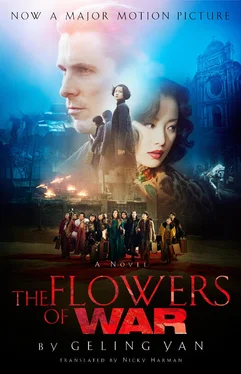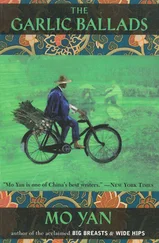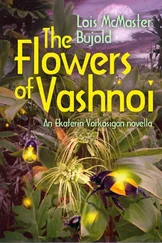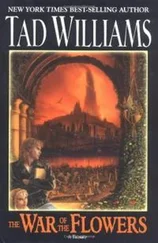The interpreter was forced to supply a translation. The Japanese officer then used the sword soaked in Dai’s blood to administer a final, gratuitous stab into the festering wound in the boy’s abdomen.
Yumo pressed her hands over her ears. The boy’s last cry was too distressing.
The torches were switched off and there was a clatter of army boots in the direction of the side door. The truck engine started into life, its roar a final blustering farewell. As it faded into the distance, the women and girls saw the feet of Father Engelmann and Fabio move effortfully, in trepidation. They were shifting the dead bodies.
Yumo burst into tears. She stepped back from the ventilation shaft, one hand still gripping her scissors, the other wiping the tears from her face, smearing it with dust in the process. She had loved Major Dai. And not only him; she was promiscuous in her love, and had given her heart to each of the three soldiers.
Fifteen


At six o’clock the next morning, Father Engelmann led the thirteen girls in a farewell to the three dead soldiers and the cook, George Chen. The girls sang the requiem Mass in low voices. Shujuan was standing at the front. After the Japanese had left, they had occupied themselves in making dozens of white camellias in fine white paper. Now each of the four corpses had a simple wreath of flowers. The girls had carried the wreaths into the nave where the women waited. The women, led by Yumo, had spent the intervening hours washing and dressing the bodies, and shaving their faces. They had put Major Dai’s head back with his body and Yumo had wrapped a fine woollen scarf of her own around his neck at the join. As the girls walked in, they were greeted by searching looks from the women.
Shujuan noticed that the prostitutes were all plainly dressed and their pale faces showed no traces of make-up. They had decorated their chignons with white flowers which they had made by tearing up a fragment of cloth. Yumo wore a black velvet cheongsam as if she were a widow. In fact, she wore full mourning garb. As Yumo’s eyes met Shujuan’s, Shujuan looked away. She didn’t feel that hot hatred towards Yumo any more. The whore wasn’t worth her hatred. Instead what she felt deep down inside her was an echoing wonder. If creatures like Yumo could go on living, then why not noble men such as Major Dai and Sergeant Major Li?
Father Engelmann wore his grandest cassock and surplice, full of moth holes since he rarely brought it out. He had combed his silver hair back and wore a priest’s hat on his head. Holding a heavy crook, he walked to the pulpit.
At seven o’clock, they buried the bodies in the churchyard. It was a cold but clear day. The cemetery had the sharp, fresh smell of cypress. Fabio had worked since before dawn to dig four graves. There was nothing to put between the bodies and the earth but silk lent by the women—scarves, dresses, wraps.
Shujuan stood on the edge of Dai’s grave. As the earth started falling on his body wrapped in ridiculously colourful clothing, tears rolled down her face. It seemed so unjust for a hero to receive a funeral like this. After the burial, she let everyone else leave and watched Father Engelmann as he stood by the graves with his head bowed.
Eventually he looked up and noticed her.
‘It’s so unfair,’ she said.
The priest looked her in the eye. ‘My child?’
‘That I should see all this. So unfair.’
‘It is.’
‘My parents have been spared all of it.’
‘They have. Do you want to say something to me, child?’
Shujuan felt the urge to tell him everything: her misery at the changes in her body, her fury at her parents, her hatred of the Qin Huai women, how she had nearly poured hot ash over them. But there was something in Father Engelmann’s knowing eyes that stopped her—as if they were telling to her to reconsider her unhappiness.
* * *
Later, Father Engelmann put on shoes with rubber soles more suitable for walking and went to the Safety Zone to report on what had happened. He would enquire, while he was there, whether there was any transport which could smuggle the girls out of Nanking. In the meantime, perhaps they could be taken to John Rabe’s house, or could be squeezed in at Dr Robinson’s. After what had happened, Father Engelmann felt that the church was now unsafe. He even wondered in trepidation whether the soldiers had smelled the girls. He seemed to remember a girl screaming last night. If only it had been his overwrought nerves which dreamed up that scream.
When Fabio went into the churchyard to tidy the graves, he found Yumo standing beside the mound where Major Dai was buried.
Fabio adjusted the bandage on his arm and turned to look at her. ‘Let’s go in. It looks like it might snow.’
Yumo flicked the back of her hand over her face. She did not want Fabio to see that she was wiping away tears.
Fabio did not move. He sensed Yumo wanted to stay and said to her: ‘Go on in, quick, it’s not safe outside.’
She turned towards him. The weeping had turned her big eyes and her nose into small reddened blotches in her wan face. She was no longer beautiful, in fact she was ugly. But, looking at her, Fabio found himself immensely moved. This twenty-five-year-old woman could so easily have been a teacher, a secretary, an ordinary wife. He imagined another scenario, one in which as a young man returned from America, he came across a girl of about ten years old whose master was about to sell her and spent all his savings on buying her. Her name, she would tell him, was Yumo. But it was too late for something like that to happen now—to either of them.
‘Do you have any family left?’ he asked her now.
‘Probably,’ she said distractedly. ‘Why do you ask?’
‘If by any chance something should happen … I’m sure it won’t, but if it did … and you lost touch with them, then I could contact them for you.’
‘You mean if by any chance I die?’ She smiled bitterly. ‘As far as my family go, it makes no difference whether I’m alive or dead.’
Fabio said nothing. His shoulder wound was throbbing painfully.
‘All they care about is their opium. Me and my sisters were all sold to buy opium for them.’
‘How many sisters do you have?’
‘I’m the eldest. I have two younger sisters and a little brother. Before my mother became an addict, I was just like those schoolgirls. I went to a good school. I was at a missionary school for a year.’
She told him briefly how she had been pawned to a distant relative as a child, and how that relative’s wife had finally sold her on to the Nanking brothel. She spoke in a flat, dull monotone as if what she was saying was quite ordinary. She told him about the humiliation of being unjustly accused of stealing the scissors, and how the incident had made her determined to get to the top, even of this degrading profession.
She and Fabio had moved into the nave of the church. The smell of incense and candlewax from the requiem Mass still hung in the air.
Yumo sat in the front pew. She casually picked up one of the Bibles placed there for the congregation, then smiled wryly at herself for doing so.
Fabio stood in front of her, one side braced stiffly against the pain from his wound. He was a little discomfited: he was not her father confessor, and she was not one of his flock. As a man used to being self-sufficient, knowing too much about other people felt like a burden and made him uncomfortable.
Suddenly she changed the subject and turned to him. ‘And what about you, Father?’
Читать дальше














